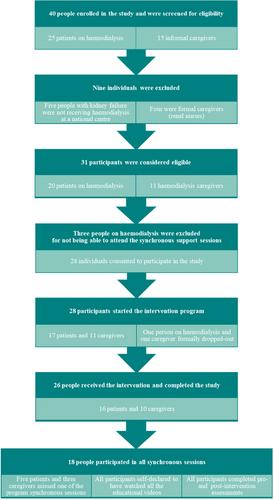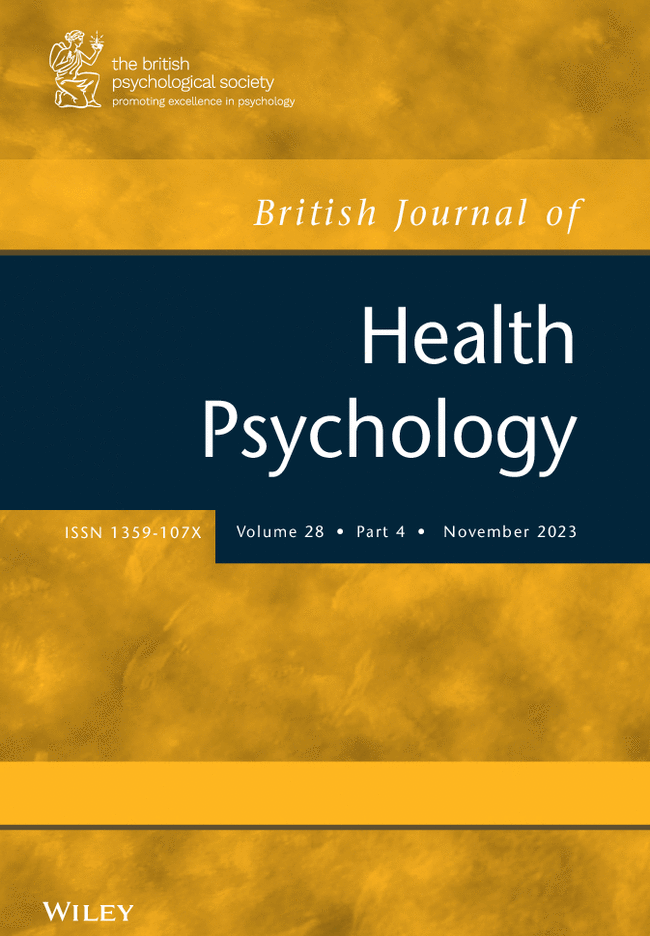The Connected We St@nd programme: A feasibility pilot study of an online self-management intervention for adults on in-centre haemodialysis and family caregivers
Abstract
Objective
The ‘Connected We St@nd’ is an online self-management intervention programme for people receiving in-centre haemodialysis and family caregivers that combines an educational and psychosocial support component. This study aimed to evaluate its feasibility and acceptability before proceeding to a large-scale trial.
Design
This was a pre-post single-arm feasibility pilot study conducted with adults undergoing in-centre haemodialysis and family caregivers.
Methods
Feasibility was based on eligibility, consent, retention, completion and intervention adherence rates, while acceptability was assessed in post-intervention focus group interviews.
Results
Twenty-six people (16 adults on haemodialysis and 10 family caregivers) recruited through social networks completed the intervention. Consent, retention and completion rates were excellent (>90%) and eligibility (77.5%) and intervention adherence were satisfactory (69% for the psychosocial support sessions). Qualitative findings revealed that participants shared positive feelings regarding their participation in the programme. The valuable interactions with group peers and health psychologists during the support sessions, the perception of the adequacy and coherence of the programme's contents and materials and the participants' confidence in using the platform developed to deliver the intervention were some of the aspects highlighted as facilitators of intervention acceptability. Additionally, people on haemodialysis and caregivers reported that participation in the programme brought several educational and emotional benefits (e.g., additional disease-related knowledge, improved communication and coping skills, greater confidence in managing dialysis complications or caregiving demands) that helped increase their self-management skills and psychosocial adjustment to the demands of kidney failure and renal therapies.
Conclusions
The results suggested that the ‘Connected We St@nd’ programme is likely to be feasible and acceptable for adults on haemodialysis and family caregivers, thus representing a promising resource for the future of interdisciplinary renal rehabilitation. Suggestions were made to fine-tune the intervention design to proceed with a large-scale trial.


 求助内容:
求助内容: 应助结果提醒方式:
应助结果提醒方式:


